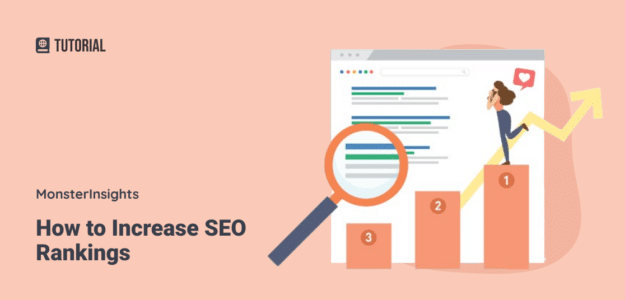Are you struggling to boost your website’s search engine ranking and wondering how to increase SEO rankings in a way that actually works? Well, you’re not alone!
It’s no surprise that everyone’s trying to boost their website SEO. In fact, according to a recent study by Backlinko, the first page of Google search results captures a whopping 99% of search traffic. That means if you’re not on that first page, you’re just not going to get clicked on.
Many website owners find themselves frustrated by low search engine visibility, but the good news is that there are strategic ways to increase your SEO rankings quickly and effectively.
In this guide, I’ll walk you through proven techniques to boost website SEO and help you climb those search engine results pages (SERPs) like a pro. Whether you’re a small business owner, blogger, or digital marketer, these strategies will help you increase search engine ranking and drive more organic traffic to your site.
8 Tried and True Strategies to Increase SEO Rankings
While there are more strategies than these 8 that you can use to improve your rankings, these are the top ones that I recommend starting with to improve your SEO quickly. Choose just a couple of ideas to start with so that you don’t get overwhelmed by all of the strategies!
1. Conduct Thorough Keyword Research
The foundation of any successful SEO strategy is solid keyword research. To increase SEO rankings, you need to understand exactly what your audience is searching for.
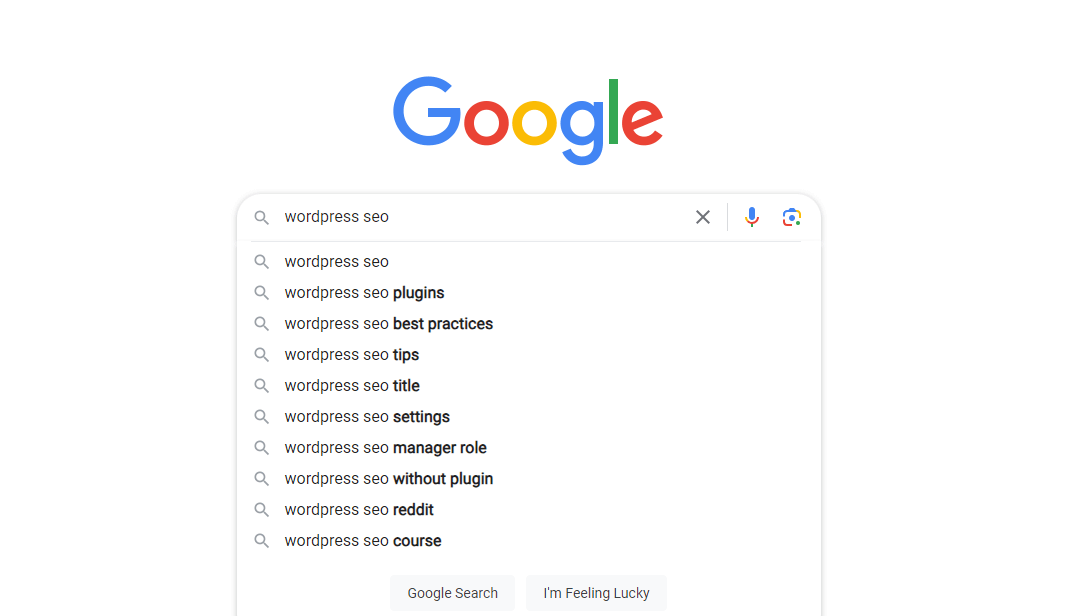
Here’s how to do keyword research like an SEO pro:
- Use tools like Semrush or Google Keyword Planner: Whether you’re using the best keyword research tools or a free keyword generator tool, make sure you’re looking far and wide for all of the best keywords to cover on a regular basis.
- Look for long-tail keywords with decent search volume: Long-tail keywords are easier to rank for, and you can rank for them faster than the super-contested ones.
- Focus on keywords with lower competition: Not all keywords with lower competition are long-tail. So, look for both long-tail keywords and lower-competition keywords.
- Group related keywords into topic clusters: If your website deals primarily with a few top subjects, you can create quite a few different content pieces on them and link them all together with one “hub” article, like an ultimate guide. This is a solid way to build topical authority.
Pro tip: Make sure you’ve set up a way to keep track of your rankings to see if your strategy is working. Grab a subscription for a keyword tracking tool if you have the budget for it. If not, learn how to use Google Search Console and try exporting keyword ranking data to a spreadsheet.
2. Optimize On-Page SEO Elements
On-page SEO is critical to think about when you want to boost overall website SEO. This includes a bunch of key elements that can significantly impact your search engine rankings!
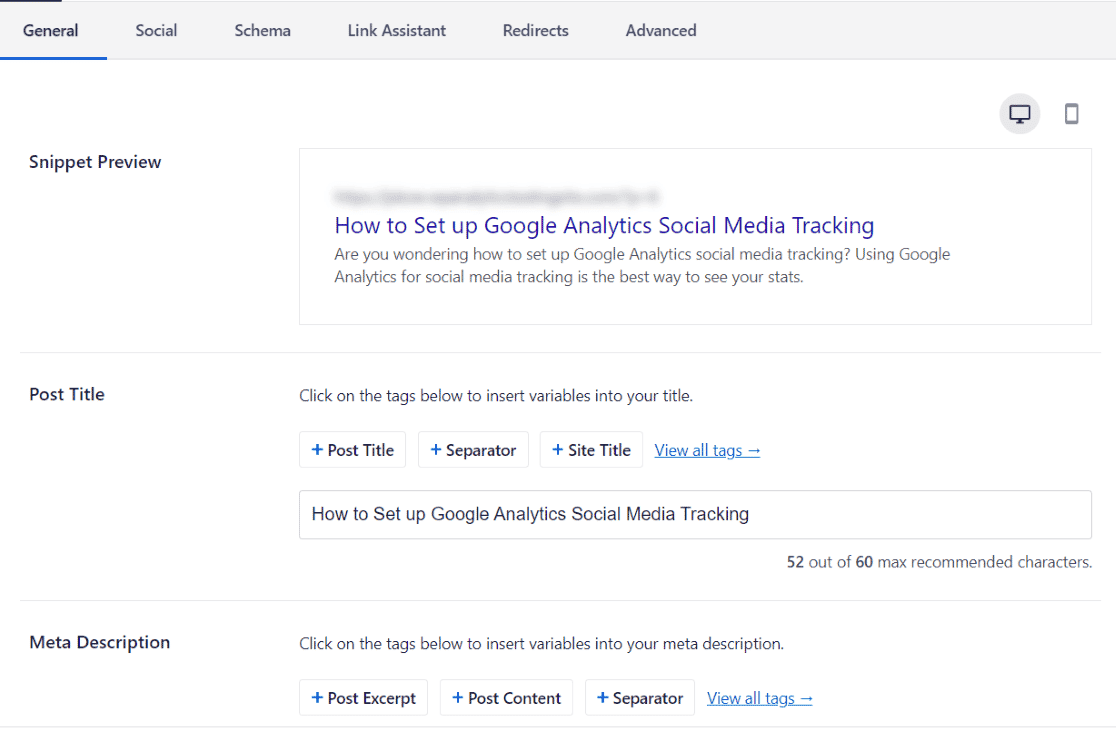
Here are some tips for how to positively impact your search engine rankings with on-page SEO:
- Craft compelling, keyword-rich title tags: Your title tags should be concise, accurately describe the page content, and include your target keyword. Aim for titles between 50-60 characters to ensure they display properly in search results.
- Write meta descriptions that increase click-through rates: While meta descriptions don’t directly affect rankings, they can influence click-through rates. Write compelling, informative descriptions of about 155-160 characters that include your target keyword and entice users to click.
- Use header tags (H1, H2, H3) strategically: Structure your content with header tags to improve readability and help search engines understand its layout and importance. Use your H1 tag for your main title, and include target keywords in your H2 and H3 tags where appropriate.
- Optimize image alt text: Describe your images accurately using alt text that includes relevant keywords. This helps search engines understand your images and can improve your rankings in image search results.
Focusing on these on-page SEO elements will create a strong foundation for your website’s search engine optimization and help boost your rankings.
3. Improve Technical SEO
Technical SEO is more about how your website works than what’s on it. It might sound intimidating, but it’s crucial for increasing search engine ranking, so it’s important to pay attention to!
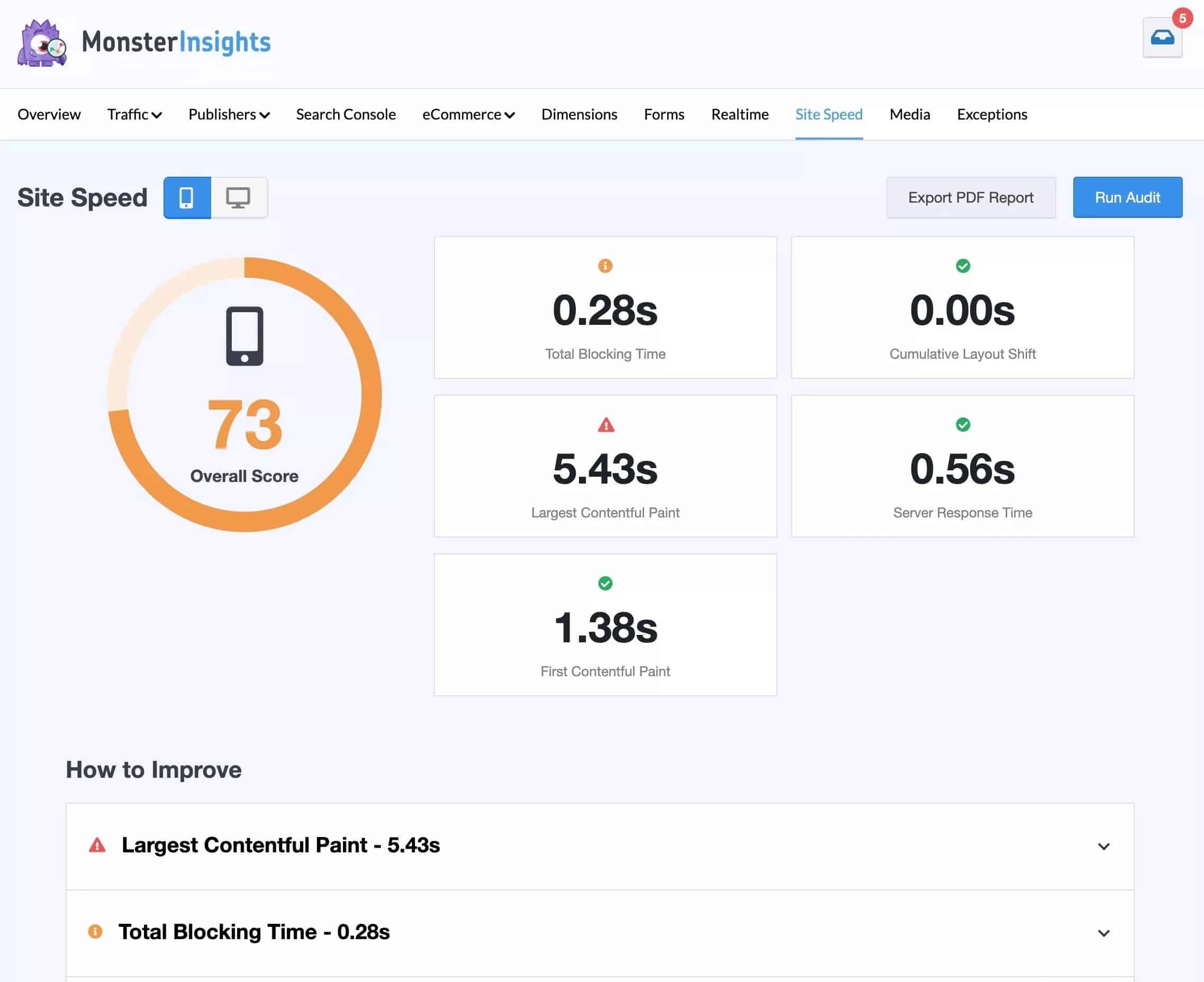
Here are key areas to focus on:
- Improve website loading speed: Fast-loading websites provide a better user experience, so they’re favored by search engines and may rank higher than slow websites! Use tools like Google PageSpeed Insights to identify and fix speed issues. Consider optimizing images, minifying CSS and JavaScript, and leveraging browser caching. For more tips, check out How to Speed Up Your WordPress Site Performance: 17 Hacks.
- Ensure mobile responsiveness: With mobile-first indexing, having a mobile-friendly website is no longer optional. Use responsive design to ensure your site looks great and functions well on all devices. Try checking the Tech report in Google Analytics to see if your mobile visitors are finding your site usable.
- Create an XML sitemap: An XML sitemap helps search engines crawl and index your site more efficiently. It’s essentially a roadmap of your website’s content. Most SEO plugins for WordPress (we like All in One SEO) can generate this for you automatically, or you can use online tools to create one.
- Fix broken links: Broken links can negatively impact user experience and your site’s credibility with search engines. Regularly audit your site for broken links using tools like Broken Link Checker and fix or remove them promptly.
- Implement schema markup: Schema markup helps search engines understand your content better, potentially leading to rich snippets in search results. Use appropriate schema types for your content, such as Article, Product, or Review schema.
By addressing these technical SEO aspects, you’ll create a solid foundation for your website that search engines will appreciate, potentially leading to higher rankings.
4. Create High-Quality, Engaging Content
Content is one of the best things you can focus on if you want to boost your SEO rankings and traffic. You’ve got to have a well-thought-out content strategy that covers relevant topics thoroughly, provides valuable insights, and answers all potential questions a reader might have.
Studies (including Backlinko’s) show that long-form content (1500+ words) tends to rank higher in search results, so try to keep your content long enough to cover the topic comprehensively.
Here are some more content tips for higher rankings:
- Focus on user intent: Understand why users are searching for a particular topic and create content that satisfies their needs. Whether it’s informational, transactional, or navigational, align your content with user intent.
- Use multimedia elements: Incorporate images, videos, infographics, and interactive elements to make your content more engaging and shareable. This can increase your time-on-page metric and reduce bounce rates, which are both positive signals for SEO.
- Implement content clustering: Organize your content into topic clusters, with a main pillar page linking to related subtopic pages. This structure helps search engines understand the breadth and depth of your expertise on a subject leading to topical authority.
- Keep content fresh and updated: Regularly update your existing content with new information, statistics, and insights. Search engines favor fresh content, and updated articles can see a boost in rankings.
- Optimize for readability: Use short paragraphs, subheadings, bullet points, and plenty of white space to make your content easy to read and scan. This improves user experience, which is a crucial Google ranking factor.
- Include data and original research: Whenever possible, include original data, case studies, or research in your content. This not only adds value for readers but also increases the likelihood of earning backlinks naturally.
- Encourage user engagement: Include elements that prompt user interaction, such as comment sections, polls, or quizzes.
- Create diverse content types: Don’t limit yourself to just blog posts. Create diverse content types like how-to guides, listicles, expert roundups, and thought leadership pieces to cater to different user preferences.
- Optimize for AI overviews and featured snippets: Structure parts of your content to directly answer common questions in your niche, increasing your chances of appearing in AI overviews and featured snippets.
Remember, the goal is to create content that provides genuine value to your audience. By focusing on quality and user experience, you’ll improve your SEO rankings, build a loyal readership, and establish your brand as an authority in your niche.
5. Build High-Quality Backlinks
Backlinks are like votes of confidence from the rest of the internet for your website. To increase search engine rankings through link building:
- Create shareable, link-worthy content: Develop high-quality, original content that others in your industry will want to reference and link to. This could include original research, comprehensive guides, or unique insights.
- Guest post on reputable sites: Reach out to respected websites in your niche and offer to contribute guest posts. This can help you build authoritative backlinks and expose your brand to a new audience.
- Reach out to industry influencers: Build relationships with influencers and thought leaders in your field. They may be willing to share your content or collaborate on projects, leading to valuable backlinks.
- Use MonsterInsights to track referral traffic and understand which backlinks are most valuable: By analyzing your referral traffic, you can identify which backlinks are driving the most engaged visitors to your site. This information can help you focus your link-building efforts on the most effective sources.
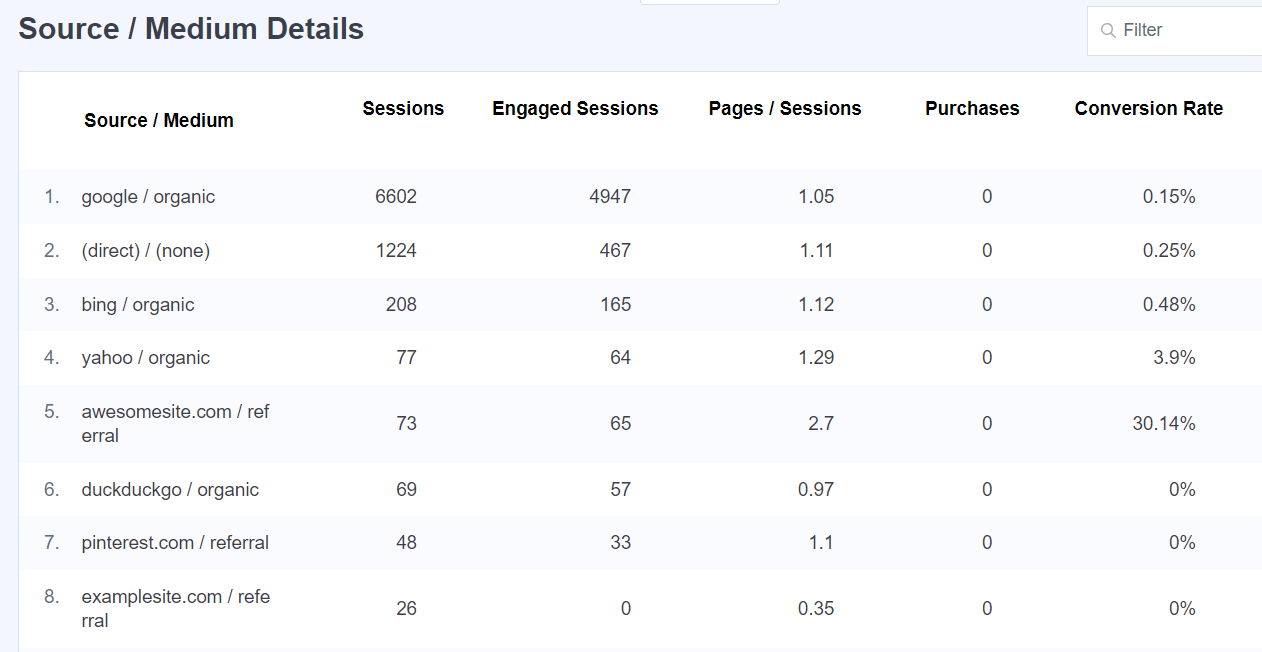
- Consider creating infographics or other visually appealing content: This type of content is the most likely that others will want to embed on their sites, naturally generating backlinks.
Remember, quality is more important than quantity when it comes to backlinks. A few high-quality links from authoritative sites can be more valuable than many low-quality links.
6. Optimize for AI Overviews and Featured Snippets
As search engines evolve, optimizing for AI-generated overviews and featured snippets becomes increasingly important. You want your site to show up at the very top of search results!

Here’s how to increase your chances of appearing in these prominent positions:
- Structure content for AI overviews and featured snippets: Organize your content in a way that directly answers common questions. Use clear headings, bullet points, and numbered lists to make information easily digestible for both users and AI.
- Target question-based queries: Identify common questions in your niche and create content that directly answers these queries. Use tools like WPBeginner’s free keyword generator or Google’s “People Also Ask” section to find relevant questions.
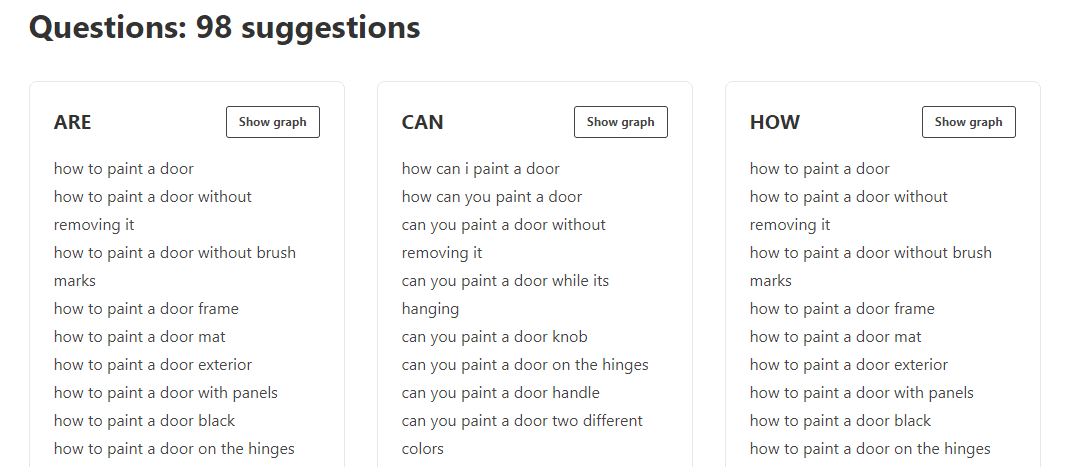
- Use schema markup: Set up appropriate schema markup to help search engines understand your content better. This can increase your chances of appearing in rich results and featured snippets.
- Create concise, informative summaries: At the beginning of your content, provide a brief, clear summary that includes the main points. This can be ideal for AI-generated overviews.
- Optimize for voice search: With the rise of voice assistants, consider optimizing for conversational, long-tail keywords that people might use when speaking rather than typing.
- Use tables and charts: For data-heavy information, present it in well-structured tables or charts. Google sometimes pulls this type of content for featured snippets.
- Keep content up to date: Regularly update your content to ensure it remains accurate and relevant. Search engines tend to favor fresh, current information for featured snippets and AI overviews.
- Focus on E-E-A-T (Expertise, Experience, Authoritativeness, Trustworthiness): Ensure your content demonstrates expertise and is backed by credible sources. This can increase your chances of being selected for AI-generated summaries.
By optimizing your content for AI overviews and featured snippets, you can increase your visibility in search results and potentially capture more clicks, even from users who don’t scroll past the featured content.
7. Monitor and Analyze Performance
You can’t improve what you don’t measure. If your website is on WordPress, make sure to check out MonsterInsights!
MonsterInsights is the best Google Analytics plugin for WordPress. Use it to keep track of all your most important metrics right inside your WordPress dashboard in easy to read, easy to understand reports.
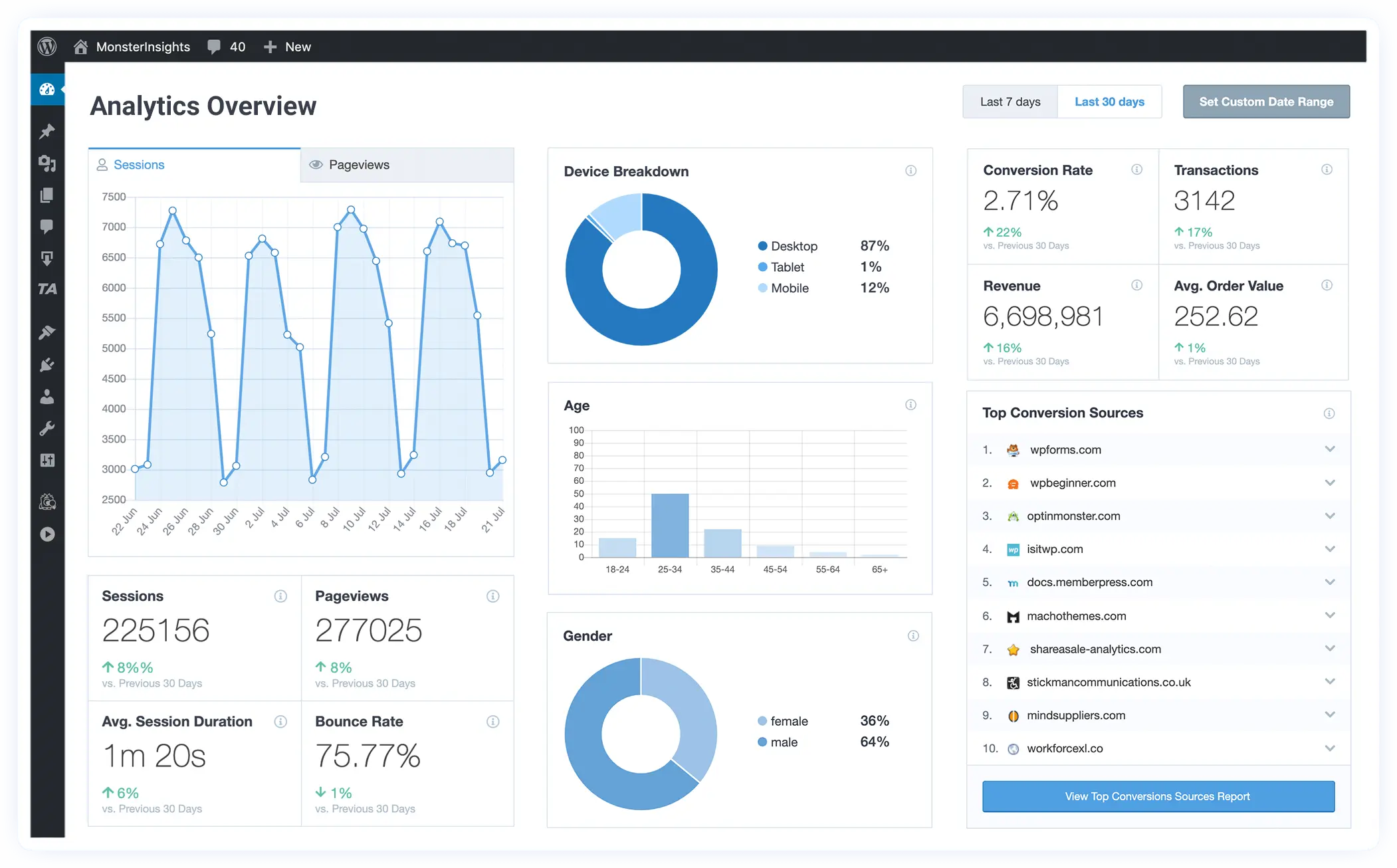
Plus, MonsterInsights can set up advanced tracking features in just a couple of clicks, such as eCommerce tracking, form submission tracking, author tracking, video tracking, button click tracking, and more.
Use tools like MonsterInsights, Google Analytics, and Google Search Console to:
- Track your keyword rankings: Regularly monitor how your target keywords are performing in search results. This can help you identify which keywords are driving traffic and which might need more optimization.
- Monitor organic traffic: Keep an eye on your overall organic traffic trends. Look for patterns or sudden changes that might indicate the impact of your SEO efforts or algorithm updates.
- Understand user behavior: Analyze metrics like time on page, bounce rate, and pages per session to understand how users interact with your site. This can help you identify areas for improvement in your content or user experience.
- Identify content opportunities: Use your analytics data to find topics that resonate with your audience. Look for popular pages or search queries that could be expanded into new content.
- Measure your SEO progress: Set up custom reports to track key SEO metrics over time. This can help you demonstrate the ROI (return on investment) of your SEO efforts and make data-driven decisions for future optimizations.
- Analyze conversion rates: Monitor how well your organic traffic is converting. This can help you understand not just the quantity, but the quality of the traffic your SEO efforts are driving.
By consistently monitoring and analyzing your SEO performance, you can make informed decisions about where to focus your efforts for maximum impact. Remember, SEO is an ongoing process, and regular analysis is key to long-term success.
For more on getting higher SEO rankings and more traffic, check out How to Increase Organic Traffic (12 Best Ways).
Common SEO Ranking Mistakes to Avoid
While working to increase SEO rankings, you want to make sure you don’t do more harm than good. To make sure you’re making positive changes, avoid:
- Keyword stuffing: You want to use your keywords in a strategic way, but don’t add so many that your content sounds bad! It’s easy to get a little carried away with adding your keyword over and over again. Make sure to keep it to enough for your content to still sound natural.
- Duplicate content: Does the content you’re writing already exist somewhere else on your site? Do you want to copy something that someone else has written? Be careful here—copying content word-for-word can get you penalized.
- Ignoring mobile optimization: Mobile is how Google crawls your site to decide where to rank you in search results! If your site doesn’t work well on mobile, you can’t rise to the top of search results.
- Neglecting page speed: Page speed will only keep getting more important to Google and other search engines. You’ve got to have a website that’s fast enough so that users aren’t tempted to hit the “back” button because they’re tired of waiting for your pages to load.
Improving your SEO ranking isn’t an overnight process, but with consistent effort and the right strategies, you can see significant ranking improvements. Remember, it’s about providing value to your users while strategically optimizing your content.
If you’re using WordPress, MonsterInsights can really help you increase SEO rankings. It integrates seamlessly with Google Analytics and Google Search Console to provide you with the stats that matter in a way that’s convenient and easy to read and understand.
Get started with MonsterInsights now!
If you found this guide helpful, check out these related articles:
Search Console Insights: 6 Powerful Reports to Boost Your SEO
The Beginner’s Guide to Search Engine Visibility
26 Best Digital Marketing Tools for Big Growth
And don’t forget to follow us on YouTube for more helpful tips and tutorials!
FAQ
How long does it take to improve SEO ranking?
Improving SEO rankings typically takes 3 to 6 months for noticeable results. The timeframe depends on competition, keyword difficulty, content quality, and backlink strength. Consistent optimization and high-quality updates can accelerate progress.
How do I appear on top of Google search?
Appear at the top of Google search by optimizing content for high-value keywords, ensuring mobile-friendliness, and achieving fast page speeds. Build domain authority through quality backlinks, create engaging meta titles and descriptions, and prioritize user-focused, relevant content.
Is SEO really worth the effort?
Absolutely! Organic search drives 53% of all website traffic, making it a critical marketing channel.
Can I do SEO myself?
Yes! With the right SEO tools and knowledge, you can significantly improve your website’s search engine ranking.
How do I rank high in Google SEO?
Rank high in Google SEO by creating high-quality, relevant content tailored to your audience’s search intent. Optimize your website with target keywords, a mobile-friendly design, fast loading speeds, and secure HTTPS. Build authority through backlinks from reputable sources and ensure regular updates with fresh content.
